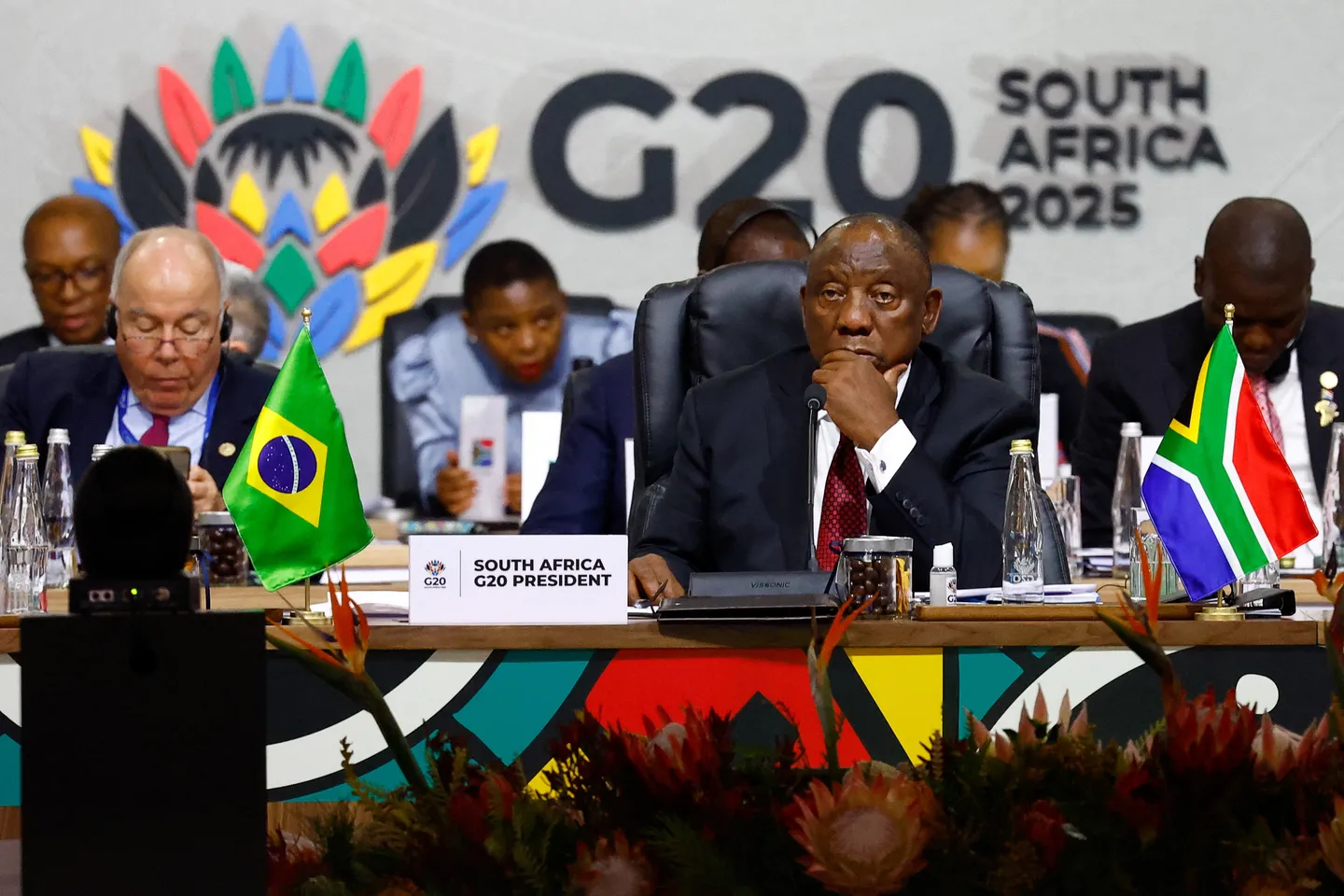The G20 Leaders’ Summit in Johannesburg, South Africa, over the weekend of November 22-23, 2025, moved beyond general promises to launch concrete, Africa-led mechanisms for infrastructure investment. Central to this agenda was the urgent need to address the continent’s crippling energy deficit, transforming it from a vulnerability into a global opportunity for green growth.
 Image by TRT World
Image by TRT World
The G20’s declaration, anchored in the African philosophy of Ubuntu ("I am because we are"), explicitly committed to accelerating Africa’s Just Energy Transition (JET), backed by two major new initiatives: the Ubuntu Legacy Initiative and the relaunched Compact with Africa 2.0.
"The African philosophy of Ubuntu, often translated as 'I am because we are', emphasises the interconnectedness of individuals within a broader communal, societal, economic, and environmental context."
— G20 Leaders’ Declaration
The Stark Reality: Africa’s Energy Deficit vs. Potential
To understand the magnitude of the G20's commitment, one must first grasp the energy paradox facing the continent:
| Metric | Data Point | Significance |
| Energy Access Deficit | ~600 Million people in Africa lack access to electricity. | This massive gap severely limits industrialization, healthcare, and education. |
| Fossil Fuel Dependence | ~75% of Africa’s electricity generation capacity relies on fossil fuels (Gas being the largest source at 42%). | Despite possessing vast clean energy potential, reliance on polluting and volatile sources remains high. |
| Global Investment Share | Africa accounts for only ~2% of global renewable energy capacity installed annually. | Low investment rates mean the continent is not capitalizing on the global clean energy boom. |
| Untapped Solar Potential | Africa has an estimated 10 Terawatts (TW) of untapped solar capacity. | The sheer scale of potential far exceeds Africa's projected energy demand for decades, making it the world's most attractive solar frontier. |
This data shows the challenge is not resource scarcity but mobilizing affordable finance at scale and de-risking large, cross-border projects. The G20 initiatives are specifically designed to solve this funding gap.
A New Chapter: The G20’s Three-Pillar Strategy for Green Infrastructure
The G20 Leaders’ Declaration confirmed a strategic commitment to accelerate the Just Energy Transition (JET) through three distinct, interlocking mechanisms:
1. The Ubuntu Legacy Initiative: Unblocking Cross-Border Projects
Recognizing that regional integration is impossible without connected infrastructure, the G20 Presidency and the African Development Bank (AfDB) officially launched the Ubuntu Legacy Initiative.
- The Analytical Insight: This initiative is not just another fund; it’s a policy framework rooted in the G20 Toolkit for Cross-Border Infrastructure. It addresses the fundamental problem of "unbankable" projects, where regulatory complexity, political risk, and lack of technical preparation prevent private capital from entering.
- The Opportunity for Investors: Ubuntu aims to create a vetted, bankable pipeline of regional infrastructure projects such as high-speed rail networks, regional power pools, and large-scale wind farms that serve multiple countries. Private developers and institutional investors should track this pipeline, as MDBs (Multilateral Development Banks) will use innovative financing tools to de-risk these key projects, making them attractive for long-term investment.
2. Compact with Africa 2.0: De-risking Private Sector Entry
The G20 reiterated support for the Compact with Africa (CwA), committing to a more ambitious second phase (CwA 2.0), supported by a newly established Multi-Donor Trust Fund.
- The Analytical Insight: The initial CwA struggled because high political and currency risks deterred private investors. The new Trust Fund, backed by initial pledges (such as €10 million from Germany), is a concrete step toward mitigating these risks. By providing guarantees, first-loss mechanisms, and concessional finance, the fund lowers the effective cost of capital for private firms.
- The Opportunity for Entrepreneurs: CwA 2.0 prioritizes projects that drive job creation and structural reform. Look for opportunities in Clean Cooking Solutions (a sector the G20 explicitly targeted due to the 1 billion people lacking clean access) and large-scale manufacturing that relies on stable, green power, as these projects will receive prioritized technical and financial backing.
3. Global Renewable Tripling and Energy Security
The G20 leaders endorsed the global commitment to triple renewable energy capacity by 2030, framing African energy security as fundamental to global stability. They also commended South Africa’s Voluntary Energy Security Toolkit, designed to help countries modernize grids and build resilience.
- The Analytical Insight: The G20 is moving away from the past narrative of "fossil fuels vs. renewables" toward a technologically neutral approach focused solely on energy security and access. This means funding is now highly available for solutions that rapidly connect the 600 million people currently living without electricity, including utility-scale solar and wind projects, but most critically, decentralized mini-grids and off-grid solar systems.
- The Opportunity for Technology Providers: The commitment to triple renewables drives demand for every component in the green energy supply chain: energy storage (batteries), smart grid technologies, specialized solar manufacturing, and e-mobility infrastructure (like battery-swapping stations for electric two-wheelers). African countries that align their national energy plans with the G20 toolkit can expect streamlined access to this global capital.
The Johannesburg G20 Summit has cemented Africa's role as the central solution to the global energy transition. By creating dedicated frameworks like Ubuntu and leveraging risk mitigation funds, the world's largest economies are now strategically aligning their capital with African agency, setting the stage for a decade of green infrastructure deployment.